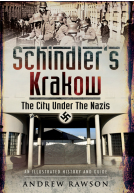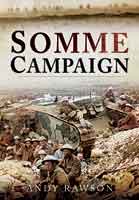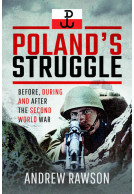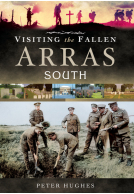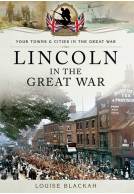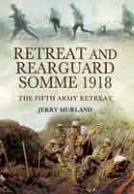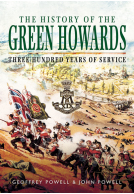Schindler's Krakow (Paperback)
The City Under The Nazis
Imprint: Pen & Sword Military
Pages: 152
Illustrations: 30
ISBN: 9781473827974
Published: 30th September 2015
Last Released: 30th June 2023
(click here for international delivery rates)
Order within the next 5 hours, 29 minutes to get your order processed the next working day!
Need a currency converter? Check XE.com for live rates
Nazi Germany invaded Poland on 1 September 1939 and five days later Krakow fell. Hans Frank's General Government then subjected the Polish and Jews to four and a half years of terror.
The story begins with the plundering of the city's treasures, the relocation of the people and the first arrests and executions. The Jews were soon confined to Podgorze Ghetto, where they were forced to work in factories such as Oskar Schindler's. The terror increased with deportations and the bloody liquidation of the ghetto as the Jews were moved into Amon Göth's Plaszow concentration camp. Selections and murders followed, while Schindler bribed and conned his way to save his workforce before moving them to his Sudetenland home town. The Polish underground also fought back through sabotage, assassinations and propaganda, until the Soviets captured Krakow.
This is an essential guide to Krakow – a city of contrasts, with a medieval centre and communist-era outskirts. Rawson details the relevant sights, including the Jewish Quarter, Wawel Castle, Podgorze Ghetto and Plaszow camp. He also explores the relevant museums, including the Schindler factory, the Gestapo headquarters and the Home Army Museum. The city is an ideal base for visiting nearby Auschwitz-Birkenau.
This compact book is especially useful as an information guide for those interested in World War II who want to search for traces of the German occupation in Krakow. The final chapter in particular is valuable to them. It deals with several relevant sights such as Schindler's factory, the Gestapo museum and Wawel Castle.
Traces of War
Read the full review here
Schindler's Krakow, published by Pen and Sword Military books, is an account of the invasion of Poland and its consequence on the citizens of Krakow, specifically the Jewish community. It’s 1 September 1939. Germany has just invaded Poland. What unfolds is a graphic account of the fall of Poland into the hands of Nazi Germany and Soviet Russia. The Germans embarked on a regime of governing Poland by relying on fear, torture and murder to ensure the Polish people did not hamper the invading tide sweeping across Eastern Europe.
Stand-Easy - Dave Cooper
The author explains how the brutal governance and policing of Krakow was executed, while total control was always maintained. For instance, the regime governed by ensuring everyone earned bread by working. Any agitators were crushed with ruthless severity. One harrowing chapter is devoted to the various organisations which arrested, interrogated, and executed anyone failing to comply with the regimes draconian laws. At the same time all Jews living in Krakow were forced to move into the Podgorze ghetto.
The author provides an interesting and detailed explanation of the Polish underground and how it operated. Oskar Schindler's story is discussed in depth, along with revelations of how he attempted to help many of the Jewish people who worked for him. Schindler's Krakow has many pictures and illustrations and provides an in depth history of the city, from its occupation in 1939, to its eventual liberation in 1945.
The book concludes with the liberation of Krakow and then speeds forward in time by visiting the modern day city, the location of the ghetto and the Schindler Factory museum. The book contains a detailed map showing the ghetto's position and its layout, along with plans of the infamous Plaszow concentration camp.
A no holes barred book that gives the reader a very small insight into the pain and suffering of the Polish Jews during the occupation of Krakow - only fully known to those who were actually there.
After the Second World War my Great Grandmother who, once released from Siberia, was rehoused in a house in what had been in the old Jewish Quarter in Krakow, by the Soviet Union. It was always on her mind that even though she was once again free, she could not get out of her mind of what had happened to the house’s former owners, under the Nazi regime.
Freelance Reviewer - Paul Diggett
Krakow has always held a special place in Polish conscience, in that it was once the capital of Poland, and by far one of the most beautiful. The place where Pope John Paul had been the local Archbishop and Catholicism runs very deep in this City.
Andrew Rawlings in his book Schindler’s Krakow has written an illustrated history and guide to the Krakow of those years when Krakow was central to Nazi occupation of Poland. This was also the city that Oskar Schindler tried to save as many Jews as he could from certain death in the camps, Auschwitz is 30 miles outside the city and then there was Plaszow a lot closer and whose commandant had a villa in the City. One which is falling in to disrepair today and generally abused by the locals.
This book can guide you around where the Ghetto was and some of the buildings that were used still standing and in use today, as is the Gestapo’s headquarters of the time, and there is a picture of it as it is today. As well as explaining how Schindler came to be in Krakow during the war and where the factory was.
This book guides you to the Battle for Poland and how the Nazis took Krakow and how they then consolidated their position, especially more so when Hans Frank came to run the Government of Occupation. So he deals with how life went on with the backdrop of round-ups and summary executions by the Nazi soldiers.
It also covers the Home Army of which members of my family were part of, as well as covering the State and Government in exile. It also explains the various politically motivated military organisations that were fighting for the hearts and minds of the Poles.
Over 134 pages you are guided around the City of Krakow as well as giving you tips if you wish to visit the City. This is an excellent short history and guide to the City of Krakow and how it was under the Nazis.
About Andrew Rawson
ANDREW RAWSON has over forty books to his name, including eight Pen and Sword ‘Battleground Europe’ travel books and three History Press ‘Handbook’ reference books. He has edited the minutes of the Second World War conferences and the top-secret correspondence between George C. Marshall and Dwight D. Eisenhower. He books include covering Poland’s struggle in the twentieth century, Auschwitz Extermination Camp and wartime Krakow. He has also written a ten-part series on the Western Front campaigns between 1914-18. He has a master’s degree with Birmingham University’s history department.







